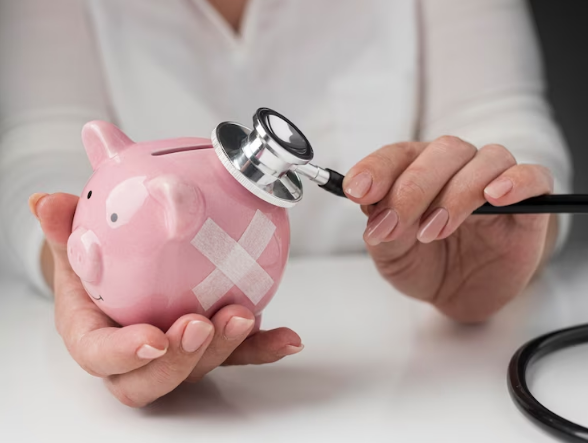Life is unpredictable, and unexpected expenses can arise at any time. Having an emergency fund can provide you with financial security and peace of mind. An emergency fund is a savings account that is specifically set aside to cover unexpected expenses, such as car repairs, medical bills, or job loss. In this blog post, we’ll explore money saving secret tips for building an emergency fund.
- Determine Your Emergency Fund Goal
The first step in building an emergency fund is to determine your goal. Ideally, your emergency fund should be able to cover three to six months’ worth of living expenses. To determine your living expenses, add up all your monthly bills, including rent or mortgage payments, utilities, groceries, and other necessary expenses.
- Create a Budget
Creating a budget is an essential step in building an emergency fund. Look for areas where you can cut back on spending, such as eating out, entertainment, and unnecessary subscriptions. Calculate how much money you can save each month and allocate that amount to your emergency fund.
- Automate Your Savings
Automating your savings is an easy way to build your emergency fund without even thinking about it. Set up an automatic transfer of a fixed amount from your checking account to your emergency fund each month. This will ensure that you consistently save money towards your emergency fund.
- Find Ways to Increase Your Income
Increasing your income is another way to build your emergency fund faster. You can look for part-time or freelance work, sell items you no longer need, or offer services such as pet-sitting or house-cleaning. Any extra income you earn can be allocated towards your emergency fund.
- Cut Back on Unnecessary Expenses
Cutting back on unnecessary expenses is another way to free up money to put towards your emergency fund. Look for areas where you can cut back, such as eating out, entertainment, and unnecessary subscriptions. Consider downgrading your phone plan or canceling cable TV to save money.
- Use Windfalls Wisely
If you receive unexpected money, such as a tax refund or a work bonus, use it wisely by putting it towards your emergency fund. Avoid the temptation to splurge on unnecessary purchases and instead use the windfall to build your financial security.
- Earn Interest on Your Savings
While your emergency fund should be easily accessible, you can still earn interest on your savings by keeping your money in a high-yield savings account. Look for savings accounts that offer a competitive interest rate with no fees or minimum balance requirements.
- Resist the Temptation to Dip into Your Emergency Fund
It’s important to resist the temptation to dip into your emergency fund for non-emergency expenses. Once you’ve built up your emergency fund, designate it as “off-limits” unless it’s truly an emergency. Remember, the purpose of your emergency fund is to provide financial security and peace of mind.
In conclusion, building an emergency fund is an important step towards financial security and peace of mind. By determining your emergency fund goal, creating a budget, automating your savings, finding ways to increase your income, cutting back on unnecessary expenses, using windfalls wisely, earning interest on your savings, and resisting the temptation to dip into your emergency fund, you can build a solid financial safety net and be prepared for any unexpected expenses that may arise. With some smart choices and a little bit of effort, you can achieve your financial goals and build a brighter future for yourself and your family.

